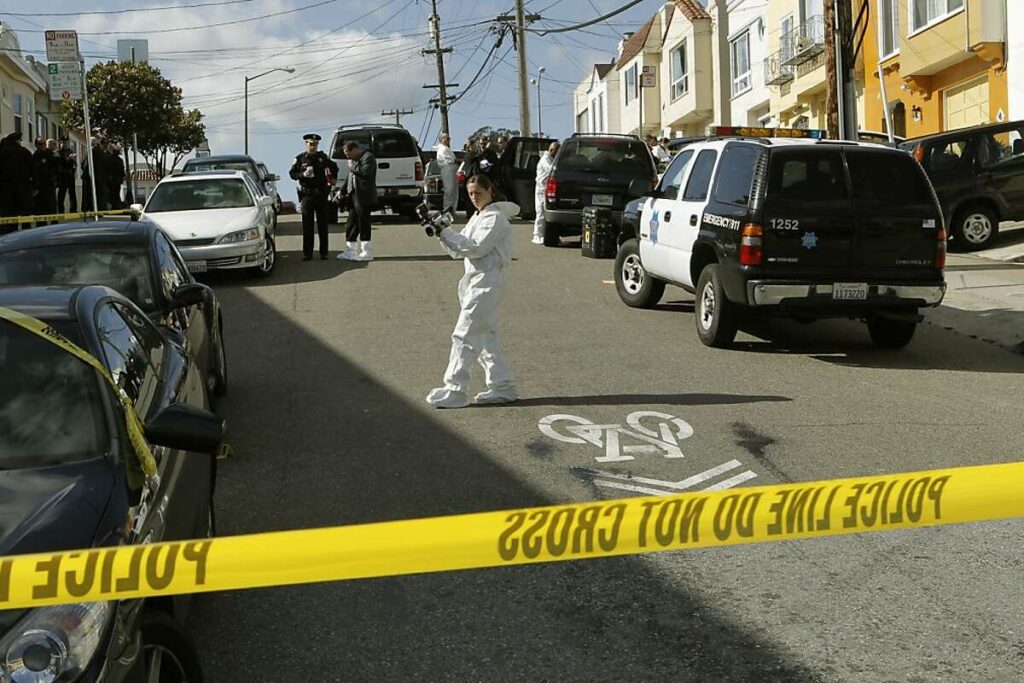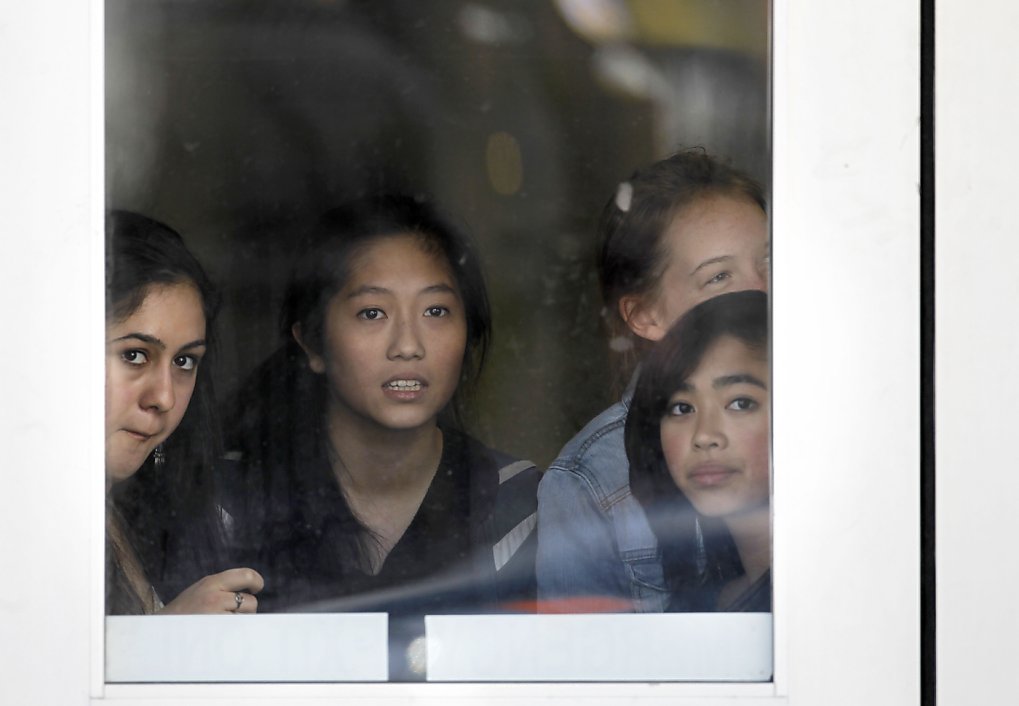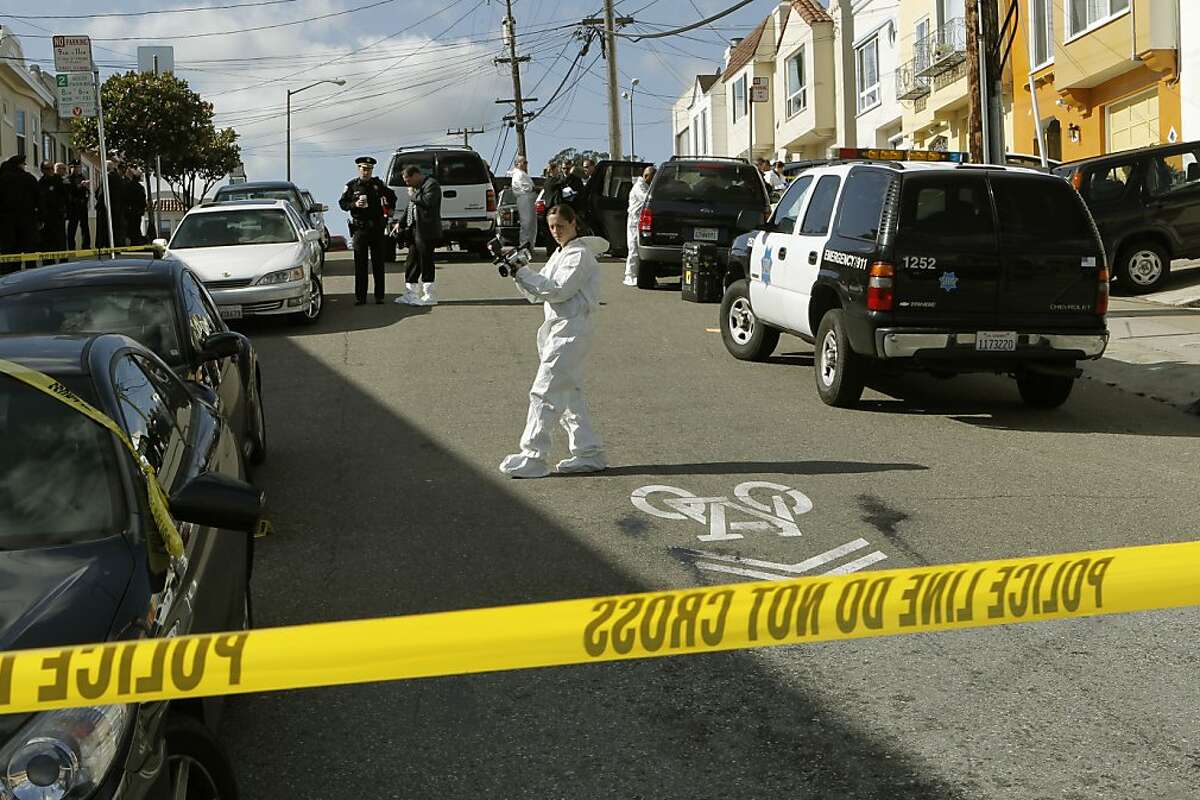
photo courtesy of Michael Macor
On Friday, March 23, 2012, the Lick-Wilmerding High School community and the surrounding Ingleside neighborhood bore witness to a tragedy on Howth Street — five people were the victims of a homicide at a house on 16 Howth, less than a hundred feet from LWHS’s Business Office. More than a decade later, the legacy of the Howth Street Homicide represents a cataclysmic, complex affair of how a community heals from and navigates the residual trauma that such tragedy induces.
For many new and incoming LWHS faculty members at the time of the incident, the matter bears particular memorability and importance. As a young Head of School in his first year at LWHS, Eric Temple navigated the challenges of leadership in the face of tragedy.
The morning of the incident, Temple called an assembly to address the LWHS community “I just felt really impressed with how he shared the news with us, especially being so new to the community. He really emphasized being present and being a soothing presence for each other,” noted biology and psychology teacher Anton Krukowski of Temple’s calming presence. “It was really touching, and felt very authentic and like gracious leadership — you could tell how he was feeling emotionally about it and he held that space for us.”
Krukowski also acknowledges LWHS’s own disconnect from its neighbors, “I do feel like it highlighted, for me, my own disconnect from our neighbors. Collectively, I think it’s kind of strange that we know so little about what is right on our block.”
For many faculty members, the event presented a dilemma — whether to directly acknowledge the issue and propagate discussion or to simply distract and attempt to keep things going. “Students’ proximity to violence differs and where kids live, where kids grow up and past experiences are going to be so varied. So it makes it particularly hard to help students process as a group as opposed to letting kids self-identify and seek out one-on-one support,” said Krukowski.
The process of grasping with and healing from the catastrophe that occurred on Howth Street also took place outside of the LWHS campus. Amidst tragedy, LWHS and the Ingleside neighborhood united in solidarity with relatives of the victims shortly after the incident. LWHS, Friends of the Urban Forest and various community groups gathered on March 19, 2012, at the Phelan Garden on the corner of Ocean and Phelan (now called Frida Kahlo Way) to plant five trees as a memorial.
The tree planting was described as “a public ceremony for students, colleagues, family, friends, and the general community to unite with the neighborhood and start the healing process, according to the newsletter of the co-sponsoring neighborhood non-profit Geneva Car Barn and Powerhouse.
“This is a wound in the neighborhood. We’re trying to do something nice,” said Alexander Mulaney, editor and publisher of the neighborhood newspaper Ingleside Light, another event co-sponsor.
In an Ingleside Light editorial about the difficulty of dealing with the brutality of the murders and the impact on the community, Mulaney wrote, “The best way to cope is to come together, work together and be together.” Former Supervisor John Avalos also attended the ceremony.

photo courtesy of Michael Macor
Much of the details around the incident remain unclear — but a 2017 trial uncovers circumstances leading up to the night of the killings. Binh Thai Luc was found guilty of the murder of those identified as Vincent Lei, 32, Lei’s father and mother, Hua Shun Lei, 65 and Wan Yi Xu, 62, his wife, Chia Huei Chu, 30, and his sister Ying Xue Lei, 37. Luc, a Vietnamese citizen who worked as a plumber and went by the nickname “Ping,” was a supposed longtime friend of Vincent Lei.
Former Assistant District Attorney Eric Fleming carefully laid out a case to the Superior Court jury on how and why Luc killed the Lei family — noting Luc’s gambling losses along with an eviction notice for past due rent owed on his apartment.
According to Fleming, “Luc and Vincent Lei were acquaintances who played mah-jongg together, and the two planned to meet at the family’s Ingleside home near the City College of San Francisco the night of the killings.”
Luc’s arrest and conviction also led to political controversy over deportation. Luc, a native of Vietnam who immigrated to the U.S. legally in 1989 as a child, was ordered to be deported after a 1998 conviction for armed robbery — but was released after completing his sentence because Vietnam’s repatriation agreement excluded those who arrived in the U.S. before 1995.
The incident also attracted national attention — Republican politicians, namely Senators Ted Cruz (R-Texas), Tom Cotton (R-Ark), and Jim Inhofe (R-Okla.) suggested amending the law to permit longer-term detention of deportable criminals and as a result, introduced the Keep Our Communities Safe Act. Cotton claimed, “Unfortunately, a “catch and release” loophole puts criminals like Binh Thai Luc back onto our streets if they can’t be deported quickly enough. My bill eliminates that loophole and would keep violent non-citizens in federal custody until they’re sent back to their home country.”
Amidst uncertainty, LWHS sustained a strong sense of community — maintaining a collective sense of empathy. More than a decade later, the legacy of the Howth Street Homicide demonstrates the complex nature of a community’s response to tragedy — and that in the face of vulnerability and trepidation, ultimately persisted.






